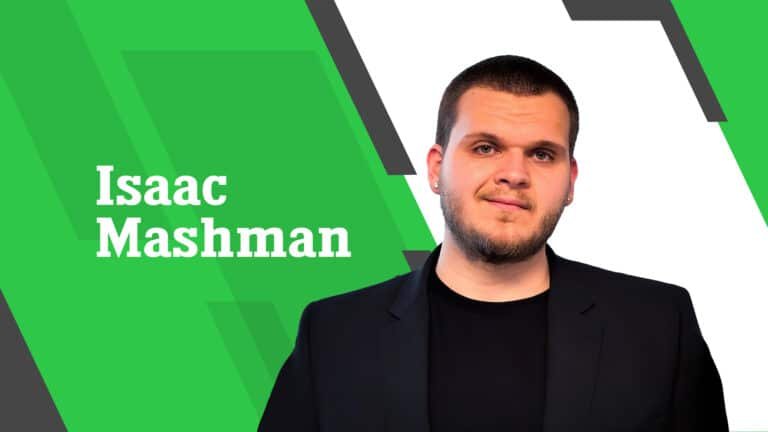Financial Strategies for High Net Worth Individuals
Managing wealth at a high net worth level is more than just basic financial advice. Personal financial advisors with a focus on wealth management are key. They help clients with complex needs like diversifying investments, optimizing taxes, and planning for the future.
HNWIs look for advisors who are experts in estate planning and business exit strategies. They have assets over $1 million and focus on keeping their wealth safe, giving back to the community, and securing their family’s financial future. They also review their plans regularly and tailor their investments to meet their long-term goals.
Key Takeaways
- HNWIs need personalized wealth management plans addressing complex tax and estate needs.
- Financial advisors must adapt strategies to evolving markets and family dynamics.
- 68% of top RIAs use specialized teams to manage high-net-worth portfolios.
- Trusts and alternative investments like real estate help mitigate risk and grow assets.
- Early financial education for heirs and multi-generational planning are critical for sustaining wealth.
Understanding the Role of a Personal Financial Advisor
A personal financial advisor is a key partner for those with a lot of wealth. They offer custom advice to manage wealth wisely. They focus on taxes, investments, and estate planning, balancing risk and growth.
Their advice makes sure decisions fit personal values and goals. This ensures long-term success.
Responsibilities of a Financial Advisor
| Credential | Requirements | Focus Areas |
|---|---|---|
| CFP® | 9 courses + exam | Taxes, insurance, estate planning |
| CFA | 3 exam levels | Investment analysis, portfolio strategy |
| ChFC | 9 college-level courses | Comprehensive financial planning |
Top advisors at firms like Fidelity or Vanguard make custom plans. They watch the market, work with CPAs and estate lawyers, and follow state rules. They also update plans as life changes, like having a family or buying a home.
Good financial advice is clear and honest. Look for advisors who put your needs first. Fees can be 1-2% of your assets or a flat fee up to $3,000. Choosing an advisor means building a strong relationship for all your financial needs.
Understanding the Role of a Personal Financial Advisor
Finding the right financial advisor is crucial. They must have both technical skills and good people skills. A good financial consulting partner will handle complex tasks like taxes and estate planning. They should also understand your personal goals.
Start by searching for “financial advisor near me.” This helps find local experts who know the local economy well.
Key Skills to Look for in an Advisor
Certifications like CFP® or CFA show they’re well-trained in managing wealth. They should have experience working with clients who have similar wealth. This means they know how to handle big challenges like family inheritances or business dealings.
It’s also important that they follow a fiduciary standard. This means they put your interests first, not just making money. About 40% of clients choose advisors who do this.
Soft skills are just as important. They should be able to explain things clearly, like market trends or retirement plans. They should also be empathetic, helping you through big changes like divorce or a new job. Ask how they balance your risk tolerance with your lifestyle goals, like saving for school or keeping assets in the family.
Being open about fees is key to building trust. Fees can range from 0.25% (for robo-advisors) to 1.5%. Fee-only models are best because they don’t have conflicts of interest. Make sure they talk about things like tax-loss harvesting, Secure 2.0 rules, or planning for Medicaid. A good advisor will use your financial data to create a plan that fits your unique situation.
Investment Strategies for High Net Worth Individuals
Successful investment management is more than just picking stocks. High net worth individuals need strategies that balance growth and risk. Proper money management starts with diversification to protect wealth from market swings. Let’s explore how to build a portfolio that works harder for you.
Diversifying Your Investment Portfolio
High net worth portfolios often split assets into four main buckets: equities (30%), fixed income (20%), real estate (25%), and alternatives (25%). Factor investing focuses on trends like value or momentum. Core-satellite strategies blend traditional holdings with niche opportunities. Global diversification includes emerging markets to avoid over-reliance on any single economy.
During market downturns, correlated assets can sink together. Rebalancing every 6–12 months keeps allocations aligned with goals. Tax-smart placement—like keeping tax-inefficient assets in IRAs—can save thousands. A $1 million portfolio losing 50% drops $500,000—diversification spreads risk so no single loss cripples the whole plan.
Investment Strategies for High Net Worth Individuals
High net worth individuals can diversify with alternative investments. Options like private equity, real estate, and hedge funds can boost returns while managing risk. But, their complexity means they need expert investment management to navigate tax rules and market trends. Financial planning services help tailor these choices to fit personal goals and timelines.
Alternative Investment Options
Private equity funds invest in undervalued companies for long-term growth. Hedge funds use strategies like short selling or derivatives to increase returns. Real estate investments, such as commercial properties, offer tangible assets and cash flow. Collectibles like art or rare wines add diversification but can be hard to sell. Private credit provides steady income through loans to businesses, often with lower volatility.
Each option needs careful analysis. Venture capital in startups is risky but can offer huge gains. Structured products combine debt and derivatives to meet specific needs. Before investing, it’s important to consider liquidity needs and fees. Private equity often requires funds for years, so aligning with financial planning services ensures these choices fit overall portfolios. Advisors suggest 5–20% allocation, based on risk tolerance.
Due diligence is key. Investors must research fund managers, fee structures, and exit strategies. Working with a qualified investment management team ensures these assets complement traditional holdings. Regular reviews with advisors help adjust strategies as markets change. Proper integration of alternatives can create resilient, growth-focused portfolios tailored to individual priorities.
Tax Planning Considerations
Tax planning is key for the wealthy. It helps protect assets and grow them over time. A good plan keeps you in line with the law and saves money. A financial advisor can make a plan that fits your needs and changes in tax laws.
Effective Tax Strategies for Wealth Management
Tax-loss harvesting can lower your capital gains. But, you must avoid the 30-day wash-sale rule to get the benefit. Health Savings Accounts (HSAs) offer tax benefits for medical expenses.
Businesses can write off equipment costs right away under Section 179. 529 plans help with education costs, and donor-advised funds offer tax breaks for giving. Direct indexing helps reduce capital gains, guided by financial experts.
Until 2025, you can’t deduct tax preparation fees. But, regular checks with advisors keep your plan up-to-date. Combining tax planning with estate planning is wise. This ensures your financial goals are met.
Tax Planning Considerations
Maximizing tax-advantaged accounts is crucial for long-term wealth. Retirement planning often includes structures like Roth IRAs. These allow for tax-free withdrawals in retirement. Financial planning services help align strategies with IRS rules, ensuring compliance and optimizing savings.
Tools like HSAs offer triple tax benefits. They have tax-deductible contributions, tax-free growth, and withdrawals for qualified medical costs. For those with higher incomes, backdoor Roth conversions or mega backdoor Roth contributions in 401(k) plans offer flexibility. Business owners can use cash balance plans to boost pre-tax savings, reducing taxable income.
https://www.youtube.com/watch?v=Gubxa3SfrJI
529 plans combine education funding with tax benefits. They let earnings grow tax-free for qualified expenses. Charitable strategies like donor-advised funds also offer tax deductions while supporting causes.
With 2025’s new IRA distribution rules, beneficiaries must withdraw 10% annually over nine years. This requires updated estate plans. High-net-worth individuals should also note the 2026 Gift and Estate Tax exclusion drop, impacting legacy strategies.
Annual reviews with tax professionals are critical. Advisors must avoid crossing into unapproved tax advice, focusing instead on IRS-compliant optimization. For example, timing Roth conversions during low-income years can lower tax brackets. Pairing these moves with financial planning services ensures strategies align with evolving laws and personal goals.
Estate Planning Basics
Estate planning is more than just giving away your stuff. It’s about protecting your legacy. A good plan makes sure your wishes are clear for your assets, family care, and taxes. Experts warn that small mistakes can cause big problems, like delays in probate or higher taxes.
Important parts include wills, trusts, and healthcare directives. More than 70% of plans now include durable power of attorney. But, many forget to update their plans after big life changes like divorce or having a child. With federal estate tax exemptions dropping in 2026, it’s more important than ever to plan ahead.
About 60% of Americans don’t have a will, leaving their heirs at risk. High-net-worth families often forget about trusts, which protect assets from probate and creditors. Financial advisors say to review your plan every 3–5 years to keep it current. Plans updated recently are more likely to be followed than old ones.
First, figure out what you want: protect your family, cut down on taxes, and keep your business going. Use the annual gift tax exemption of $18,000 per person to reduce your estate’s taxes. Work with advisors to balance giving to charity with who gets your assets. Remember, estate plans in 12 states face state taxes, so where you live matters.
Estate Planning Basics
Choosing between wills and trusts is the first step in leaving a legacy that reflects your wishes. Without a will, over 55% of Americans face family disputes and costly legal battles. Financial planning services can guide you, balancing privacy, tax benefits, and control over your assets.
Money management also needs a clear estate plan to avoid probate costs, which can be in the thousands of dollars.
| Feature | Will | Trust |
|---|---|---|
| Probate Required | Must go through court | Avoids court involvement |
| Privacy | Details become public | Remains private |
| Cost | Lower initial cost | Higher upfront fees |
| Control Over Assets | No control after death | Allows ongoing management |
| Tax Benefits | Limited tax advantages | Potential tax savings |
Revocable living trusts let you manage assets and avoid probate. Irrevocable life insurance trusts protect assets from creditors. Over 70% of estate plans need updates within five years, making regular reviews crucial.
Experts suggest reviewing plans after major life changes, like marriage or having children. For example, a revocable trust can direct assets to heirs without court oversight. In contrast, a will requires public validation.
A will is simple for smaller estates, but high-net-worth individuals often use both. Revocable trusts can name guardians for minors and distribute assets privately. Over 25% of people forget to name guardians, risking court decisions.
Trusts also protect digital assets and long-term care preferences, which 60% of plans overlook. Always consult professionals to tailor strategies, ensuring your wishes are followed at every step.
Risk Management and Insurance
High net worth individuals face unique risks that need special insurance solutions. Standard policies often don’t cover luxury assets or complex financial structures well. Professional financial planning services help find and fill coverage gaps with tailored strategies.
| Insurance Type | Key Features | Coverage Examples |
|---|---|---|
| Umbrella Policies | Supplements homeowner/automobile liability | Personal injury claims exceeding policy limits |
| Whole Life Insurance | Tax-deferred cash value growth | Estate tax mitigation, wealth transfer |
| Art & Jewelry Coverage | Customizable for high-value items | Collector vehicles, fine art, vintage jewelry |
| Executive Disability | Replaces 60-70% of income | Loss of income due to illness or injury |
Life insurance death benefits are tax-free, making them key for estate planning. Placing policies in irrevocable trusts can avoid estate taxes. For instance, a $10,000 annual investment might grow to $20,000 in two years. But a life insurance policy could provide $200,000 in death benefits right away.
Disability insurance is crucial since many employer plans only cover 60% of income. High earners need more. Reviewing all policies annually with a fiduciary advisor is essential. Working with financial advice experts ensures your insurance, investments, and estate plans are in sync. Remember, good risk management is about more than avoiding losses. It’s a key part of keeping your wealth safe for the long term.
Risk Management and Insurance
Protecting your wealth means tackling personal liability risks that could unexpectedly drain your assets. A personal financial advisor skilled in financial consulting can spot risks like board service, owning high-value property, or hobbies with yachts or private planes. These activities can lead to “deep pockets” lawsuits, making early planning key.
Common High-Net-Worth Liability Risks
| Risk Type | Example Scenario | Mitigation Strategy |
|---|---|---|
| Professional Liability | Board member sued for corporate decisions | Directors & Officers (D&O) insurance |
| Asset Exposure | Malpractice claims against physicians | Professional liability insurance + asset protection trusts |
| Recreational Risks | Yacht-related accidents | Umbrella insurance + liability waivers |
Strategies for Protection
High net worth individuals should combine insurance with structural safeguards. Using LLCs and irrevocable trusts can protect real estate and business assets. Financial consulting experts like Susan M. Tillery suggest reviewing coverage limits annually. For instance, long-term care insurance can help cover costs over $100k/year.
Working with certified advisors ensures strategies fit with estate plans. Don’t wait for a lawsuit or accident to address gaps. Personal financial advisors can set up defenses that protect your assets and legacy.
Retirement Planning Strategies
Retirees often wonder how much to take out of their savings each year. A 2023 RBC Wealth Management survey showed 63% of wealthy people are still unsure about their retirement funds. Advisor Brian O’Shea says, “This uncertainty shows the importance of retirement planning tailored to each person.” Good strategies mix spending with keeping money safe for the future.
The 4% rule, which suggests taking 4% of your savings each year, is helpful for some. But, with changing risks, we need more flexible plans. Here are some modern strategies:
| Strategy | Key Features |
|---|---|
| Bucket Systems | Divide savings into short-term, mid-term, and long-term buckets |
| Dynamic Adjustments | Adjust withdrawals based on market performance and life changes |
| Income Layering | Combine pensions, Social Security, and investment income |
Working with financial planning services can lead to personalized plans. A 2023 study found households with planners had an average of $246,797 in savings. This is more than double those without plans. Planners help create plans that consider inflation, healthcare, and taxes.
Tools like Monte Carlo simulations test your plan against past market data. With professional advice, you can make plans that adjust to life’s surprises. Your plan should grow with you, ensuring a steady income without using up all your savings too soon.
Retirement Planning Strategies
Social Security decisions greatly impact retirement for high earners. Benefits can make up 35-40% of income. Financial advice helps make these choices fit personal goals, like delaying claims for more money.
High-income workers face special challenges. Benefits are based on the highest 35 years of earnings. But, those earning over a certain amount may get less. Couples can use strategies like “file and suspend” to get more.
Taxes also play a role. Up to 85% of benefits may be taxed if other income is too high. This is true for individuals earning over $34,000 or couples over $44,000.
| Factor | Key Data |
|---|---|
| Max Taxable Earnings (2024) | $160,200 |
| Average Life Expectancy Post-Retirement | ~20 years |
| Delayed Retirement Credit | +8% per year delayed past FRA |
| Catch-Up Contribution (2024) | $7,500 for 401(k) plans |
Financial advisors use tools to plan for retirement. Delaying until 70 can increase monthly payments by 24% over starting at 62. High earners should think about how benefits work with IRAs, pensions, and health care costs.
NYSLRS members can get projections by calling 1-866-805-0990. Reviewing claiming strategies regularly helps them stay on track with changes and longevity risks.
Philanthropy and Wealth Management
Philanthropy and wealth management often go hand in hand. They offer chances to give wisely while reaching financial goals. Experts say high-net-worth people can match their charity work with smart tax moves. They suggest using donor-advised funds or trusts to boost both impact and efficiency.
Strategies for Charitable Giving
Donor-advised funds make giving easier. They allow donors to put in assets like stocks and get tax breaks right away. Private foundations are great for big gifts over $5 million, giving donors control but needing ongoing work.
Wealth management pros suggest picking the right option based on your goals and what you have. Charitable remainder trusts or lead trusts offer income for donors and gifts to nonprofits later. ESG investments mix profit with doing good, and families can work together to create lasting legacies.
Donating appreciated assets can save on taxes, and using life insurance for gifts is smart too. Estate plans can include charitable trusts to cut taxes and support causes. Wealth advisors help set up giving plans that balance giving with keeping finances stable.
Philanthropy and Wealth Management
Donor-advised funds (DAFs) are a flexible way to mix charity with financial planning. They let you give cash, stocks, or other assets, offering tax benefits and making giving easier. Financial planning services help set up DAFs, matching them with your values and tax goals.
Setting Up a Donor-Advised Fund: A Strategic Approach
To begin a DAF, pick a sponsor like Fidelity Charitable or Schwab Charitable. The amount needed to start varies, but the process is easy through most banks. You can deduct your donation right away, even if you give later.
This flexibility makes DAFs a favorite for financial consulting teams. They help clients make the most of their charitable deductions.
| Benefit | Statistic | Impact |
|---|---|---|
| Tax efficiency | 90% of donors prioritize effective use of funds | Aligns giving with tax planning |
| Family involvement | 60% of families report stronger cohesion | Promotes multigenerational engagement |
| Advisor impact | 80% of donors find advisors improve grant targeting | Ensures strategic philanthropy |
Getting help from financial consulting experts ensures DAFs fit well with estate plans. They guide on giving appreciated assets, avoiding mistakes. More than 70% of advisors also check if gifts are meeting their goals.
DAFs are key in modern wealth management, helping with both legacy and yearly giving.
The Importance of Cash Flow Management
For high net worth individuals, managing money means tracking income and expenses. Investments or businesses can bring in unpredictable income. This is why having organized systems is key to avoid overspending.
Tools like the aixigo Cash Flow Planner help see where money is coming in and going out. Experts suggest starting with a 3–6 month emergency fund. This helps protect against sudden market changes.
Budgeting Tips for High Income Earners
Automate savings into accounts like IRAs. Start by paying off high-interest loans first. Keep an eye on spending on luxury items or family support to stay on track with your goals.
Platforms like ProVise’s offer real-time cash flow analytics. They help ensure you’re following the rules while planning for retirement or giving to charity.
| Income Streams | Expense Categories | Action Steps |
|---|---|---|
| Salaries, rental income | Mortgages, staff wages | Use budgeting apps for real-time tracking |
| Dividends, business profits | Travel, education costs | Consult financial advisors to balance spending and investments |
Regular meetings with financial advisors like ProVise are crucial. They help ensure your cash flow matches your goals, like funding education or buying property. The aixigo tool lets you test scenarios, like market dips, to adjust your budget ahead of time.
By balancing your lifestyle with savings, you can build lasting wealth. These strategies help you make the most of your money over time.
The Importance of Cash Flow Management
A solid emergency fund is key to managing cash flow. Personal financial advisors suggest having enough cash for unexpected expenses. Most people aim for three to six months’ worth, but those with variable incomes or businesses might need more.
Financial planning services help find the right balance between safety and growth.
Emergency Fund Recommendations
Planning should match your unique situation. Here’s how different scenarios influence recommendations:
| Income Stability | Recommended Months | Strategies |
|---|---|---|
| Steady Salary | 3-6 months | High-yield savings accounts |
| Contract Work | 6-12 months | Securities-based lending, private banking |
| Business Owner | 9-12+ months | Credit lines, tiered cash accounts |
Automating savings can increase productivity by 70%, studies show. Advisors use forecasts to keep track of money. This ensures funds meet your goals. Automatic withdrawals make saving easier without affecting investments.
High-net-worth individuals often mix emergency funds with liquidity tools. A financial planning services expert can help weigh cash reserves against investment returns. For instance, securities-based lending lets you use assets without selling them.
Evaluating Investment Performance
It’s crucial to regularly check your portfolio to see if it meets your long-term goals. High net worth investors need to look at more than just the numbers. They should understand how risk affects growth.
Metrics like the Sharpe ratio and the Sortino ratio are key. They show how well investments perform considering risk. These tools help figure out if investment management strategies are effective.
| Metric | Description |
|---|---|
| Sharpe Ratio | Compares return vs. total risk |
| Sortino Ratio | Focuses on downside risk |
| Information Ratio | Measures excess return per unit of risk |
| After-Tax Return | Shows net gains after tax liabilities |
Benchmarks are important too. Compare your returns to indices like the S&P 500. Non-profits often skip reviews, but individuals shouldn’t.
Use tools like FINRA’s BrokerCheck to check advisor history. Fee structures also matter. Advisors might charge 1% on the first $1 million and 0.5% after.
Consolidating accounts can save money. Couples might save $5,000 yearly by choosing one advisor. Always ask advisors how they measure success and how their financial advice fits your goals.
Regular meetings are key. Wealthy boards review advisor relationships every 3-5 years. This keeps everyone accountable. Pairing this with cash flow planning and estate goals makes a complete strategy. Remember, regular checks ensure your investments work as hard as you do.
Evaluating Investment Performance
It’s important to know when to check your investment management plan. Life events like a business sale or divorce, or big changes in the market, mean it’s time for a review. Tax law changes or new personal goals also call for a look-over. Your advisor should help you through these times, avoiding overreaction to normal market ups and downs.

Triggers for Strategic Adjustments
Markets change, and so should your plan. If your portfolio’s volatility doesn’t match your risk tolerance, it’s time to adjust. A 2019 study found 78% of advised clients felt more ready for recessions than those managing alone.
Use tools like annualized return formulas and Sharpe ratios to check how you’re doing. Work with your advisor to rebalance your investments if they’re not meeting benchmarks for two years. Keep track of after-tax gains to spot underperforming assets.
Regular reviews, at least every six months, help avoid making decisions based on emotions. Long-term data shows households with advisors for 15+ years grew 290% more than those without. Stay proactive but patient, balancing being adaptable with having a solid strategy.
Choosing the Right Financial Advisor for You
Finding a personal financial advisor or financial advisor near me is a big deal. People with a lot of money need advisors who get their unique goals and family needs. First, ask them about their wealth management approach and experience with clients like you.
Start by asking how they handle tough issues like estate planning or taxes. Ask for examples of their successes and challenges. It’s important to find advisors who are open about fees and their duty to act in your best interest.
| Question | Why It Matters |
|---|---|
| How do you structure fees? | Fee transparency ensures alignment of interests. Aim for fiduciaries charging 0.25%–1% AUM or hourly fees under $300. |
| What’s your experience with HNW clients? | Seek advisors with proven track records managing portfolios over $1M. Ask for references. |
| How do you handle ongoing client communication? | Look for monthly or quarterly reviews and emergency contact availability. |
| What certifications do you hold? | CFP® designees meet rigorous education standards and ethical requirements. |
Check their credentials on the SEC’s Investment Adviser Public Disclosure database. Stay away from advisors with penalties. Remember, 70% of HNWIs trust advisors for big life decisions. So, pick someone who listens well and adjusts plans as your family grows.
Choosing the Right Financial Advisor for You
Knowing how financial advisors get paid helps match your goals with their services. People with a lot of money need to understand fees to avoid surprises and build trust. Look for “financial advisor near me” to find experts who offer custom “financial consulting” plans.
Understanding Fee Structures and Compensation Models
There are many ways advisors get paid. Some get a commission for each deal, while others charge a percentage of your money (usually 0.5%–2% a year). Fee-only advisors charge by the hour, making things clear. Hybrid models mix these methods. Check Form ADV and the Client Relationship Summary (CRS) to see if there are any conflicts of interest.
Look for advisors with credentials like CFP, AAMS, or CRPC, and at least five years of experience. Ask about extra costs, like platform fees or transaction charges. A “financial advisor near me” with expertise in retirement or estate planning can help with specific needs. Always check references and reviews to see if they are reliable and quick to respond.
Choose advisors who can adjust to your changing needs, using strategies like personalized withdrawal plans or donor-advised funds. Over 70% of clients feel more confident with advisors, so look for those who communicate clearly and explain fees well. Whether you need tax advice or investment guidance, “financial consulting” services should match your long-term goals. Start looking for options in your area today.
FAQ
What is considered a high net worth individual in the United States?
FAQ
What is considered a high net worth individual in the United States?
In the U.S., someone with over
FAQ
What is considered a high net worth individual in the United States?
In the U.S., someone with over $1 million in investable assets is considered high net worth. This level of wealth comes with unique challenges and opportunities that need special financial strategies.
How does a personal financial advisor differ from a typical financial planner?
A personal financial advisor for the wealthy has more expertise than a regular planner. They offer detailed wealth assessments, tax advice, and estate planning. This helps manage the complexities of large wealth.
What key skills should I look for in a financial advisor?
Look for a financial advisor with advanced certifications like CFP or CFA. They should have experience with the wealthy, act as a fiduciary, and have good communication skills. These skills are key for handling complex financial situations and multi-generational needs.
What are some advanced investment strategies for high net worth individuals?
Wealthy individuals should explore beyond basic asset allocation. They can use factor investing, core-satellite strategies, and diversify globally. This helps their portfolios stay strong during market stress.
What alternative investments should high net worth individuals consider?
Wealthy investors might look into private equity, hedge funds, venture capital, and direct real estate. These options can diversify and hedge against inflation but come with risks and liquidity challenges.
How can high net worth individuals optimize their tax strategies?
Wealthy individuals can plan their taxes by managing income and capital gains. They should also optimize their business structures. A proactive approach to tax efficiency is key to their investment and estate planning.
What tax-advantaged accounts should high net worth individuals utilize?
High net worth individuals can benefit from tax-advantaged accounts like qualified retirement plans and health savings accounts. These accounts offer tax benefits and help achieve financial goals.
Why is a well-structured estate plan important for wealthy individuals?
A good estate plan is vital for the wealthy. It preserves family harmony, protects privacy, and ensures business continuity. It also safeguards against creditors and supports charitable giving.
What are the differences between trusts and wills in estate planning?
Trusts and wills serve different roles in estate planning. Trusts offer privacy and control over asset distribution, while wills are simpler for straightforward distributions. They can work together for a comprehensive plan.
What types of insurance should high net worth individuals consider?
Wealthy individuals should consider umbrella policies, property and casualty insurance, and tailored life insurance. Proper coverage is essential for managing risks effectively.
What are some personal liability risks that wealthy individuals face?
Wealthy individuals face unique liability risks from board service, household employment, and real estate. Proper insurance and asset protection strategies can mitigate these risks.
How can wealthy retirees create a sustainable withdrawal plan?
Wealthy retirees should use advanced withdrawal strategies beyond the 4% rule. Techniques like time-segmented bucket strategies and dynamic withdrawals can protect against longevity risk and taxes while offering flexibility.
What Social Security considerations should high-income individuals keep in mind?
High-income individuals should optimize their Social Security benefits by understanding the calculation method. They should consider the impact on lifetime benefits for couples and tax implications, as well as potential reforms.
What strategies can align charitable giving with financial objectives?
Wealthy individuals can align charitable giving with financial goals by using donor-advised funds and private foundations. These vehicles enhance tax benefits and allow for greater control and impact.
How do donor-advised funds work?
Donor-advised funds offer a flexible way to give charitably. Individuals can make contributions, get tax deductions, and recommend grants to charities over time. The fund can grow the donated assets.
Why is cash flow management important for wealthy individuals?
Wealthy individuals need structured cash flow management to handle irregular income and maintain financial stability. This includes budgeting and managing discretionary spending.
What liquidity planning strategies should wealthy individuals consider?
Wealthy individuals should assess their liquidity needs based on income volatility and lifestyle commitments. They can use tiered cash management accounts and premium credit lines to ensure cash availability without disrupting investment plans.
How can high net worth investors evaluate investment performance?
Investors should evaluate performance using risk-adjusted return metrics, benchmark selections, and performance attribution analysis. This helps assess how investments meet specific goals and perform in different markets.
When should investors reassess their investment strategies?
Investors should reassess their strategies during significant life changes, major market shifts, or changes in personal goals. Understanding when to adapt is crucial for staying aligned with long-term financial objectives.
What questions should I ask when choosing a financial advisor?
When choosing a financial advisor, ask about their approach, experience with the wealthy, investment philosophy, team structure, and continuity planning. These questions help ensure a suitable partnership.
What are common fee structures in wealth management?
Wealth management fees include percentage-based, flat retainers, hourly, and performance-based fees. It’s important to understand these models and ask about all costs to assess value properly.
million in investable assets is considered high net worth. This level of wealth comes with unique challenges and opportunities that need special financial strategies.
How does a personal financial advisor differ from a typical financial planner?
A personal financial advisor for the wealthy has more expertise than a regular planner. They offer detailed wealth assessments, tax advice, and estate planning. This helps manage the complexities of large wealth.
What key skills should I look for in a financial advisor?
Look for a financial advisor with advanced certifications like CFP or CFA. They should have experience with the wealthy, act as a fiduciary, and have good communication skills. These skills are key for handling complex financial situations and multi-generational needs.
What are some advanced investment strategies for high net worth individuals?
Wealthy individuals should explore beyond basic asset allocation. They can use factor investing, core-satellite strategies, and diversify globally. This helps their portfolios stay strong during market stress.
What alternative investments should high net worth individuals consider?
Wealthy investors might look into private equity, hedge funds, venture capital, and direct real estate. These options can diversify and hedge against inflation but come with risks and liquidity challenges.
How can high net worth individuals optimize their tax strategies?
Wealthy individuals can plan their taxes by managing income and capital gains. They should also optimize their business structures. A proactive approach to tax efficiency is key to their investment and estate planning.
What tax-advantaged accounts should high net worth individuals utilize?
High net worth individuals can benefit from tax-advantaged accounts like qualified retirement plans and health savings accounts. These accounts offer tax benefits and help achieve financial goals.
Why is a well-structured estate plan important for wealthy individuals?
A good estate plan is vital for the wealthy. It preserves family harmony, protects privacy, and ensures business continuity. It also safeguards against creditors and supports charitable giving.
What are the differences between trusts and wills in estate planning?
Trusts and wills serve different roles in estate planning. Trusts offer privacy and control over asset distribution, while wills are simpler for straightforward distributions. They can work together for a comprehensive plan.
What types of insurance should high net worth individuals consider?
Wealthy individuals should consider umbrella policies, property and casualty insurance, and tailored life insurance. Proper coverage is essential for managing risks effectively.
What are some personal liability risks that wealthy individuals face?
Wealthy individuals face unique liability risks from board service, household employment, and real estate. Proper insurance and asset protection strategies can mitigate these risks.
How can wealthy retirees create a sustainable withdrawal plan?
Wealthy retirees should use advanced withdrawal strategies beyond the 4% rule. Techniques like time-segmented bucket strategies and dynamic withdrawals can protect against longevity risk and taxes while offering flexibility.
What Social Security considerations should high-income individuals keep in mind?
High-income individuals should optimize their Social Security benefits by understanding the calculation method. They should consider the impact on lifetime benefits for couples and tax implications, as well as potential reforms.
What strategies can align charitable giving with financial objectives?
Wealthy individuals can align charitable giving with financial goals by using donor-advised funds and private foundations. These vehicles enhance tax benefits and allow for greater control and impact.
How do donor-advised funds work?
Donor-advised funds offer a flexible way to give charitably. Individuals can make contributions, get tax deductions, and recommend grants to charities over time. The fund can grow the donated assets.
Why is cash flow management important for wealthy individuals?
Wealthy individuals need structured cash flow management to handle irregular income and maintain financial stability. This includes budgeting and managing discretionary spending.
What liquidity planning strategies should wealthy individuals consider?
Wealthy individuals should assess their liquidity needs based on income volatility and lifestyle commitments. They can use tiered cash management accounts and premium credit lines to ensure cash availability without disrupting investment plans.
How can high net worth investors evaluate investment performance?
Investors should evaluate performance using risk-adjusted return metrics, benchmark selections, and performance attribution analysis. This helps assess how investments meet specific goals and perform in different markets.
When should investors reassess their investment strategies?
Investors should reassess their strategies during significant life changes, major market shifts, or changes in personal goals. Understanding when to adapt is crucial for staying aligned with long-term financial objectives.
What questions should I ask when choosing a financial advisor?
When choosing a financial advisor, ask about their approach, experience with the wealthy, investment philosophy, team structure, and continuity planning. These questions help ensure a suitable partnership.
What are common fee structures in wealth management?
Wealth management fees include percentage-based, flat retainers, hourly, and performance-based fees. It’s important to understand these models and ask about all costs to assess value properly.
How does a personal financial advisor differ from a typical financial planner?
What key skills should I look for in a financial advisor?
What are some advanced investment strategies for high net worth individuals?
What alternative investments should high net worth individuals consider?
How can high net worth individuals optimize their tax strategies?
What tax-advantaged accounts should high net worth individuals utilize?
Why is a well-structured estate plan important for wealthy individuals?
What are the differences between trusts and wills in estate planning?
What types of insurance should high net worth individuals consider?
What are some personal liability risks that wealthy individuals face?
How can wealthy retirees create a sustainable withdrawal plan?
What Social Security considerations should high-income individuals keep in mind?
What strategies can align charitable giving with financial objectives?
How do donor-advised funds work?
Why is cash flow management important for wealthy individuals?
What liquidity planning strategies should wealthy individuals consider?
How can high net worth investors evaluate investment performance?
When should investors reassess their investment strategies?
What questions should I ask when choosing a financial advisor?
What are common fee structures in wealth management?
Source Links
- The Ultimate Guide to High Net Worth Financial Planning – https://www.hancockwhitney.com/insights/the-ultimate-guide-to-high-net-worth-financial-planning
- What HNW Prospects (Really) Want From A Financial Advisor | Kitces Podcast – https://www.kitces.com/blog/high-net-worth-hnw-prospects-advisor-services-ceg-insights-data-john-bowen/
- How financial advisors win high net worth clients ꟾ BlackRock – https://www.blackrock.com/us/financial-professionals/insights/how-to-attract-high-net-worth-clients
- Personal Financial Advisor: What It Is, What They Do – https://www.investopedia.com/terms/p/personal-financial-advisor.asp
- What Does a Financial Advisor Do and Should I Get One? – https://www.ml.com/articles/what-does-a-financial-advisor-do.html
- What Does a Financial Advisor Do? – https://www.investopedia.com/articles/personal-finance/050815/what-do-financial-advisers-do.asp
- Benefits of working with a financial advisor – New (US|EN) – https://www.edwardjones.com/us-en/working-financial-advisor/benefits-working-financial-advisor
- Guide to High Net Worth Financial Planning Strategies – https://www.halberthargrove.com/high-net-worth-financial-planning-strategies/
- Five Financial Strategies for High-Net-Worth Individuals – https://www.kiplinger.com/personal-finance/financial-strategies-for-high-net-worth-individuals
- Financial Planning Strategies for High-Net-Worth Individuals – Insight Wealth Strategies – https://insight2wealth.com/blog/financial-planning-strategies-for-high-net-worth-individuals/
- Goals for High Net Worth Investing | Edelman Financial Engines – https://www.edelmanfinancialengines.com/education/investment-management/setting-investment-goals-for-high-net-worth-individuals/
- Ten Top Financial Planning Tips for High Net Worth Individuals| Brown Shipley – https://brownshipley.com/en-gb/news-and-insights/ten-top-financial-planning-tips-for-high-net-worth-individuals
- Tax Tips for Financial Advisors – https://www.investopedia.com/articles/tax/11/tax-tips-for-advisors.asp
- Your Guide to Tax-Efficient Planning | Morgan Stanley – https://www.morganstanley.com/Themes/tax-efficient-investing-financial-planning
- How Advisors Can Offer Tax Planning And Stay In Compliance – https://www.kitces.com/blog/tax-planning-strategies-client-communication-prohibited-advice-financial-advisors-compliance-irs-rules/
- Tax Planning Checklist – https://www.edelmanfinancialengines.com/education/tax/tax-opportunity-checklist/
- 7 questions about estate planning – https://www.ameriprise.com/financial-goals-priorities/family-estate/estate-planning
- Estate Planning Basics | Wells Fargo Advisors – https://www.wellsfargoadvisors.com/planning/goals/estate-planning/basics.htm
- Estate planning basics: What’s estate planning? | Vanguard – https://investor.vanguard.com/investor-resources-education/article/estate-planning-basics
- How to Tackle Estate-Planning Basics in 7 Steps – https://www.morningstar.com/personal-finance/how-tackle-estate-planning-basics
- Estate Planning Basics, Tips, and Essential Documents – https://www.pbig.ml.com/articles/easy-and-essential-estate-planning-fundamentals.html
- Estate Planning Essentials: 7 Key Steps | Morgan Stanley – https://www.morganstanley.com/articles/estate-planning-checklist
- Why is Insurance Important in Financial Planning? | U.S. Bank – https://www.usbank.com/wealth-management/financial-perspectives/financial-planning/insurance-financial-plan.html
- Insurance Planning Services & financial risk Management | Cerity Partners – https://ceritypartners.com/individuals-and-families/insurance-planning-and-risk-management/
- What Is Risk Management in Finance, and Why Is It Important? – https://www.investopedia.com/terms/r/riskmanagement.asp
- How Insurance and Risk Management Fit Into Your Financial Plan – PAX Financial Group – https://paxfinancialgroup.com/financial-planning/how-insurance-and-risk-management-fit-into-your-financial-plan/
- Personal Financial Risk Management – https://www.newyorklife.com/articles/personal-financial-risk-management
- Risk Management and Insurance Planning Learning – https://www.aicpa-cima.com/cpe-learning/course/risk-management-and-insurance-planning-certificate-program
- A Comparison of Retirement Strategies and Financial Planner Value – https://www.financialplanningassociation.org/article/journal/NOV14-comparison-retirement-strategies-and-financial-planner-value
- Retirement Planning: A 5-Step Guide for 2025 – NerdWallet – https://www.nerdwallet.com/article/investing/retirement-planning-an-introduction
- Retirement Financial Advisors: A Comprehensive Guide – https://www.businessinsider.com/personal-finance/investing/should-i-hire-retirement-advisor
- Straight Talk About Financial Planning For Your Retirement – https://www.osc.ny.gov/retirement/publications/straight-talk-about-financial-planning-your-retirement
- 5 Financial Planning Tips for Your Retirement – https://www.wesleylife.org/blog/5-financial-planning-tips-for-your-retirement
- Private Philanthropic Services, Advisory & Strategies – https://www.pbig.ml.com/solutions/personal-philanthropy.html
- Gifting and philanthropic solutions – https://www.rbcwealthmanagement.com/en-us/solutions/gifting-and-philanthropic-solutions
- Philanthropic Planning and Charitable Giving Strategies | U.S. Bank – https://www.usbank.com/wealth-management/private-wealth-management/strategic-financial-planning/philanthropic-planning-and-charitable-giving-strategies.html
- A Guide to Working with Philanthropic Advisors – https://www.fidelitycharitable.org/content/dam/fc-public/docs/resources/working-with-a-philanthropic-advisor-guide.pdf
- Strategies for effective cash flow management – https://www.ameriprise.com/financial-goals-priorities/personal-finance/personal-cash-flow-management-strategies
- What a personal cash flow analysis is and why financial planners use it – https://www.provise.com/what-a-personal-cash-flow-analysis-is-and-why-financial-planners-use-it/
- The Importance of Cash Flow Planning for Financial Advisers – https://www.linkedin.com/pulse/importance-cash-flow-planning-financial-advisers-christopher-baxter
- Here’s How to Improve Your Personal Cash Flow Management | Team Hewins – https://teamhewins.com/personal-cash-flow-management/
- What is Cash Flow Planning: Benefits, Importance and Types – https://www.highradius.com/resources/Blog/cash-flow-planning-guide/
- Best Practices for Evaluating Your Investment Advisor – https://www.manning-napier.com/insights/best-practices-for-evaluating-your-investment-advisor
- How To Evaluate Your Financial Advisor – https://www.forbes.com/sites/robertlawton/2019/01/06/how-to-evaluate-your-financial-advisor/
- Evaluating Performance – https://www.finra.org/investors/investing/investing-basics/evaluating-performance
- Metrics to Evaluate Investment Performance | True Wealth Design – https://www.truewealthdesign.com/evaluating-your-investment-portfolios-performance-key-metrics-to-consider/
- Is Wealth Management Worth It? The ROI of Working With a Financial Advisor – https://www.harnesswealth.com/articles/is-financial-advising-worth-it-the-roi-of-professional-investment-management/
- How to Choose a Financial Advisor – NerdWallet – https://www.nerdwallet.com/article/investing/how-to-choose-a-financial-advisor
- How To Choose A Financial Advisor – https://www.forbes.com/advisor/investing/how-to-choose-a-financial-advisor/
- How to choose a financial advisor – https://www.edwardjones.com/us-en/working-financial-advisor/how-choose-financial-advisor
- A Visit from Jason Smith: Discussing the Future of Tax Policy with Bill Carter – https://www.carterwealth.com/insights/how-to-choose-the-right-financial-advisor-for-you/







